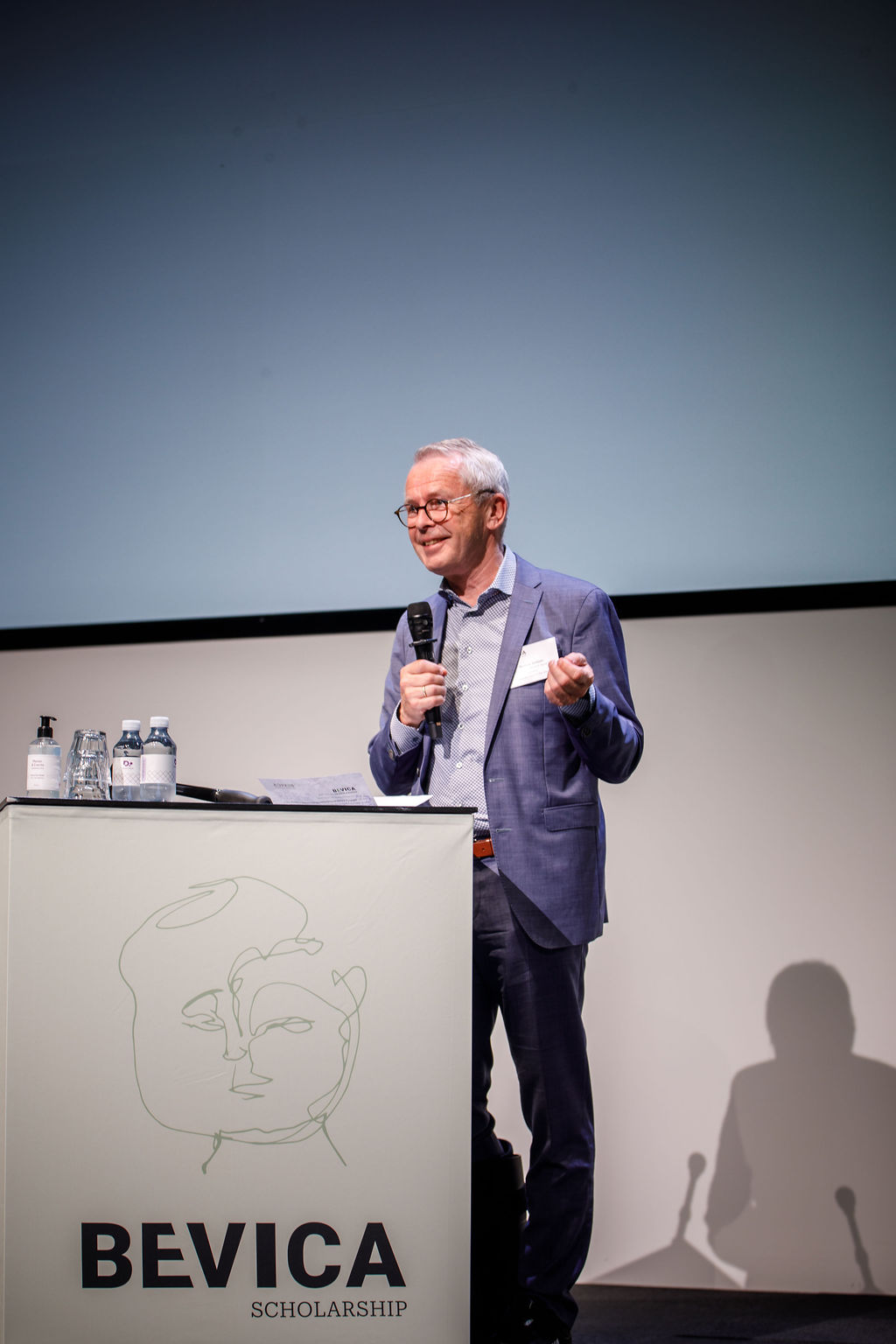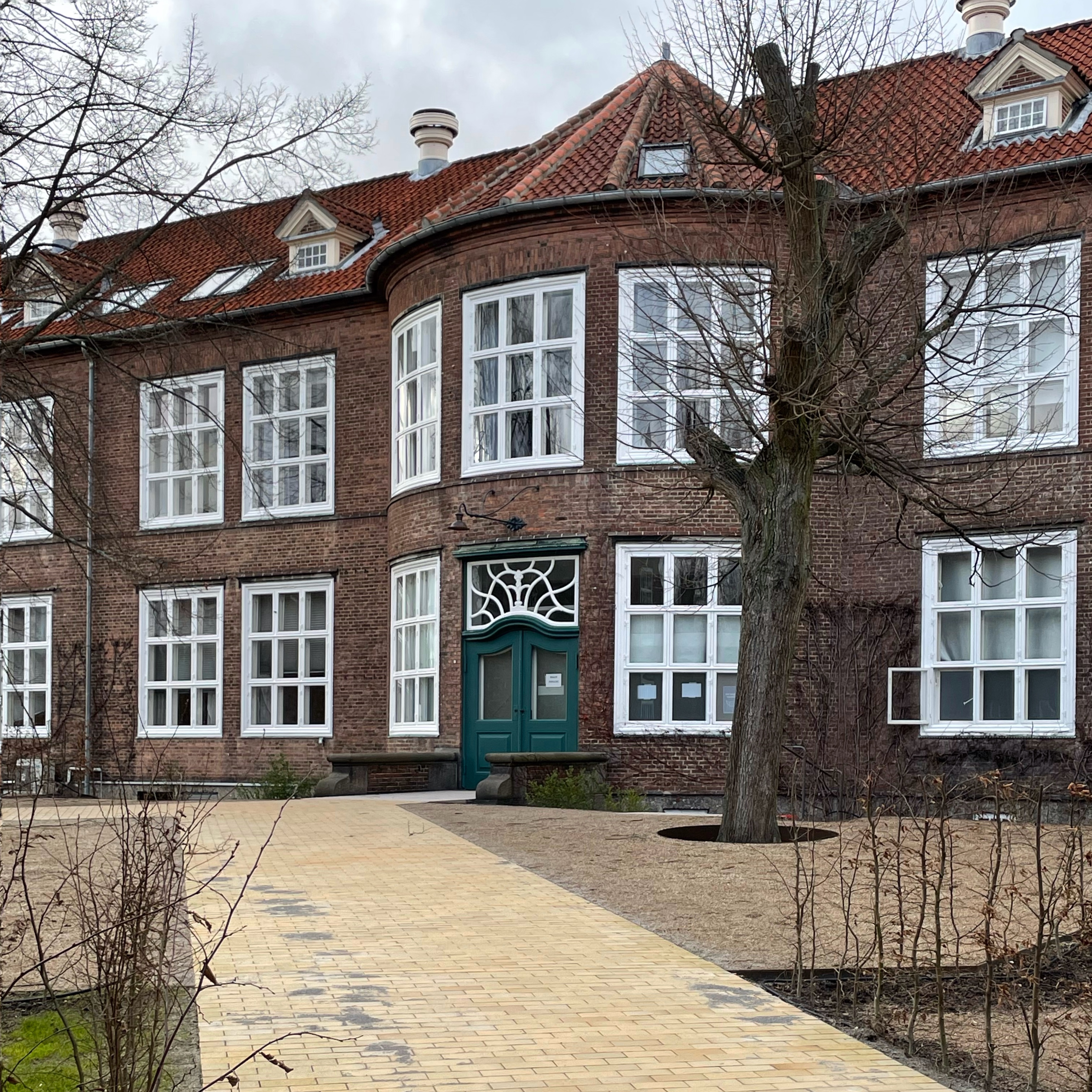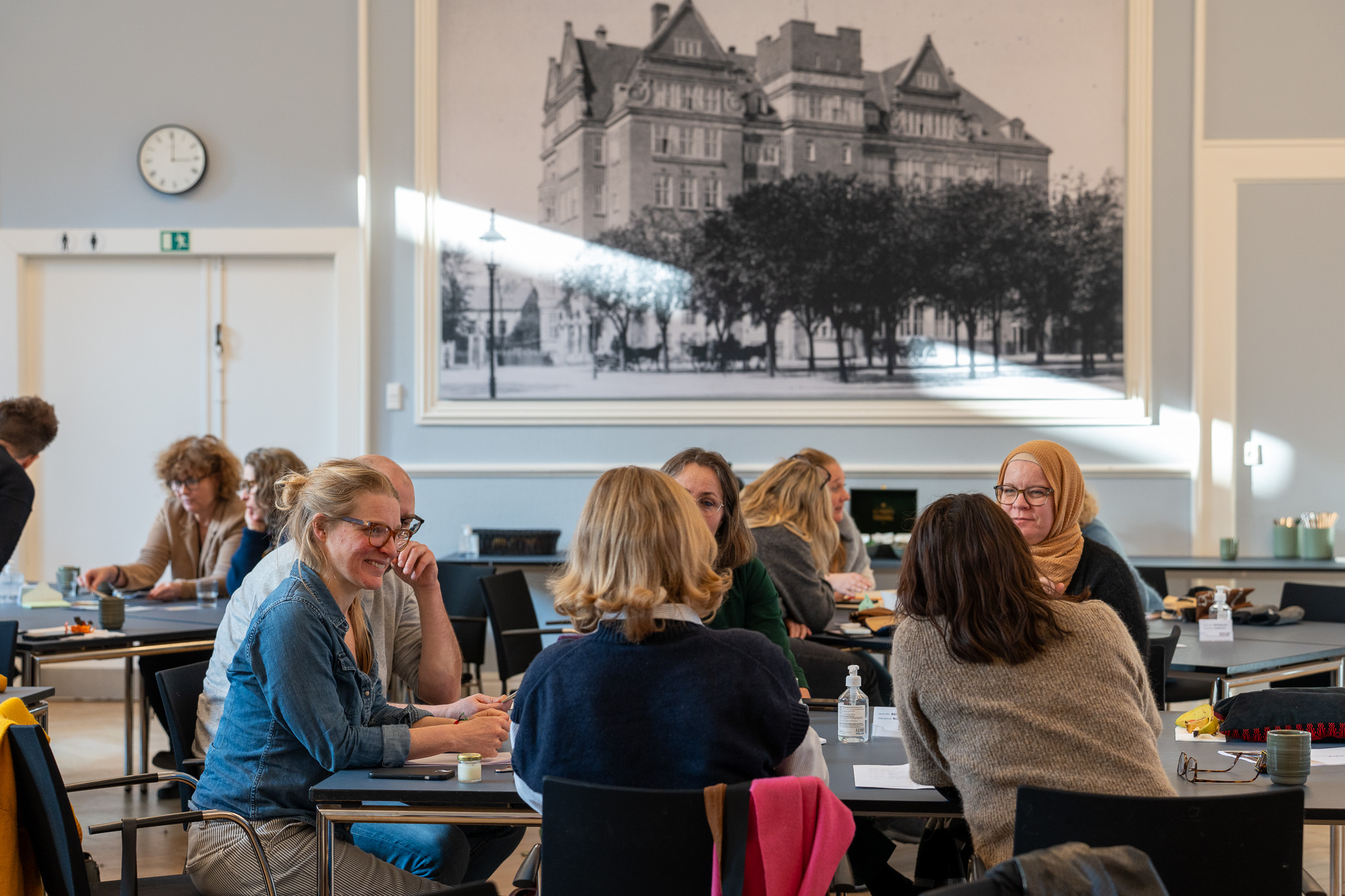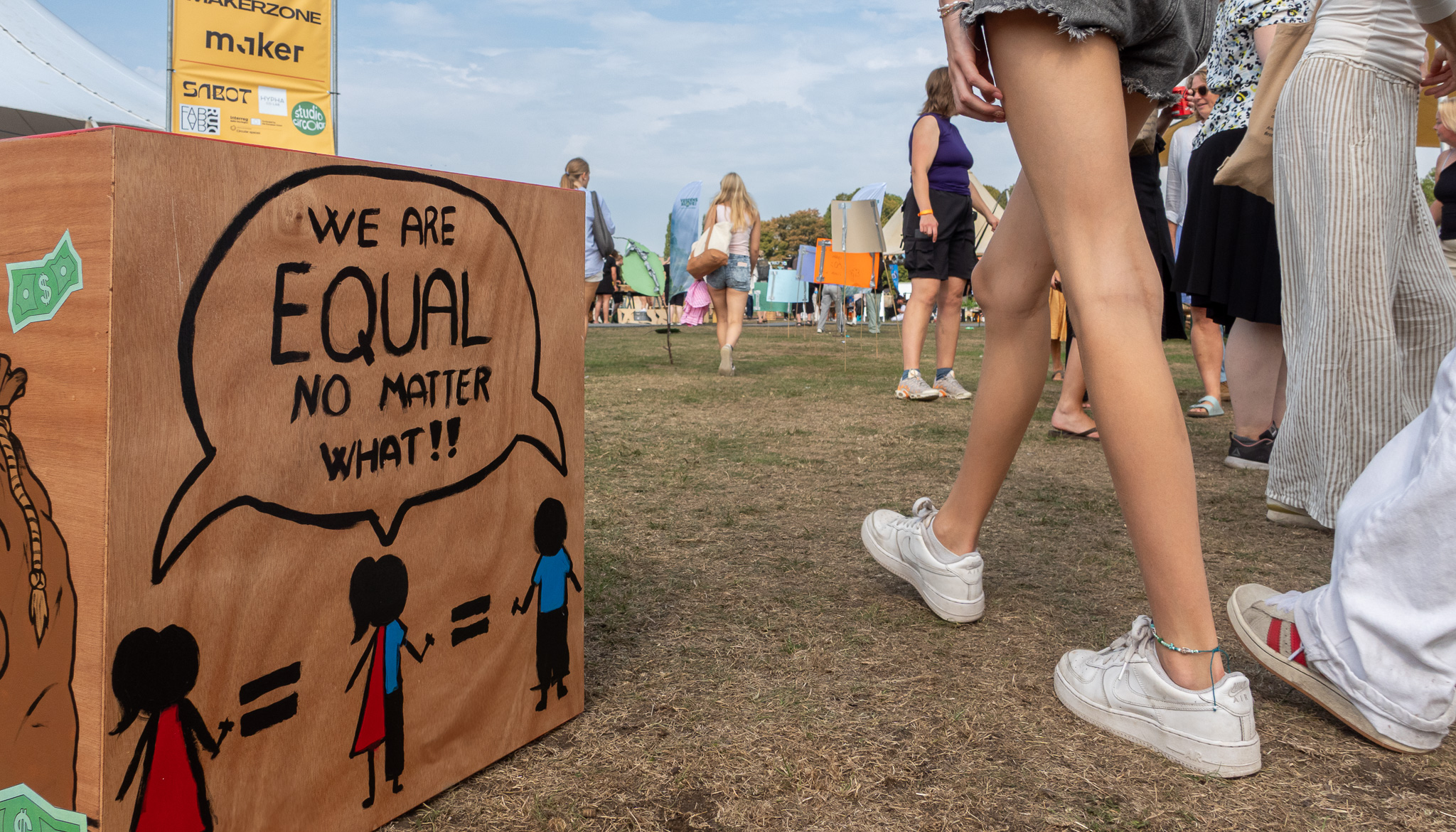
A society for all? The Bevica Foundation allocates 10 million for new research in universal design

Bevica Foundation invites efforts to strengthen the interdisciplinary field of knowledge on universal design in Denmark. The foundation has allocated a total of DKK 10.5 million to be distributed among a number of PhD research projects aimed at exploring universal design as a means to create a more equitable and inclusive society in Denmark.
Download the PhD call here
Imagine a society where it is not the framework that dictates whether you can do or be involved in the things you want. Where, regardless of your ability, you can decide and do exactly what you want without having to deal with outside barriers.
If you have a body that is fully functional, it may not be difficult to imagine, but if you have a disability — permanent or temporary — it is not always quite so easy.
The common framework of cities, urban spaces and society in general is full of barriers that for some are insurmountable. But with increased awareness of removing barriers, we can jointly succeed in creating a society where there is actually room for and equal opportunities for all.
In the Bevica Foundation, the value-based design concept of universal design has been an important strategic focal point since 2020, when the foundation established the Universal Design Hub with the aim of strengthening an interdisciplinary field of knowledge about universal design in Denmark. Today, the Foundation operates an interdisciplinary research network and the Bevica Scholarship Programme, which runs every two years.
On Thursday 9 October, the foundation held the Bevica Scholarship Programme Award Show 2025 and announced a pool of DKK 10.5 million for a PhD call with the aim of investigating universal design as a means of creating a more equal and inclusive society.
Facts about the PhD call
- A framework of DKK 10.5 million has been allocated for a number of PhD research projects.
Applicants with all relevant skills are invited to apply. Applicant is the prospective PhD candidate. - The applicant PhD candidate must have a master's degree (or equivalent qualification) by the application deadline. You can apply in all relevant PhD models, i.e. 5+3, 3+5 and 4+4, all you need to do is specify and justify in the application which model is being applied for.
- It is considered an advantage that either the PhD candidate or primary supervisor has participated in the Bevica Scholarship Programme (in the Student or Lecturer category).
- If you as an applicant or as a primary supervisor for an applicant have not participated in the Bevica Scholarship program, you must be able to prove at the time of submission of the application that you have qualifications and insight about universal design similar to that offered by the Scholarship program.
- Applications are judged by an international review committee.
Register for The Online information meeting: PhD funding for research in universal design
The pool targets a broad field of academic disciplines, and there is a very special reason for this, says Thomas Sinkjær, Chairman of the Board of the Bevica Foundation.
“We don't live our lives in silos. Therefore, there is a need to examine the potential of universal design to create a society where there is room for everyone. Our desire for the pool is to gain an interdisciplinary perspective on universal design, and we would like to see applications covering both a practical and academic level. That is why we are also reaching out broadly.”
Thomas Sinkjær, Chairman of the Board of the Bevica Foundation
Download the PhD call here
Universal design in the Danish commitment
The value-based design concept of universal design, which Bevica Fonde has been actively promoting for a number of years, stems from architecture, where the American architect Ron Mace formulated it in the 1980s with a desire for a changed view of the human being, which recognizes that bodily function variation is a universal human condition that we all share.
Since then, it has been developed so that it can be used multidisciplinarily as a process and solution tool.
With Denmark's ratification of the UN Convention on Disability in 2009, the concept took a central place in the development of society, as universal design is concretely written in as part of the convention's focal points.
This community contract is the reason why the Bevica Foundation initially adopted it as a key concept in the foundation's strategic work, and also because the foundation is now devoting even more funds to become smarter about how we can arrange our society in the future so that everyone can participate.
“The origin of universal design is in architecture, but our strategic work with the concept over the past several years has shown us how it gives us new insights into blind spots and development potential at all levels of society — whether in the concrete physical layout or right into the concrete legal text.
Knowledge out to work
The Bevica Foundation, through a number of partnerships, has just investigated universal design as a means of creating a more inclusive society. Since 2016, the Foundation has been working with the Royal Academy in Copenhagen to integrate knowledge about universal design into the education of architects and designers of the future.
Since then, several partners have joined, and today the foundation works with DTU, Aalborg University, Design School Kolding, Landsbyggefonden, Copenhagen Municipality, Folkemødet, the Association of Young People with Disabilities (SUMH) and Parasport Danmark.
The newly announced framework of DKK 10.5 million for doctoral research projects in universal design also fits into a number of other research projects with human vision and universal design as key concepts, which the Bevica Foundation has initiated.
The goal is to get knowledge to work, says Thomas Sinkjær.
“We use all the knowledge we have and take the initiative in very concrete terms in working with our partnerships. It is an important part of creating concrete change so that more people have the opportunity to live an active life on their own terms.”
Latest News
Follow the latest news from the Bevica Foundation below.



